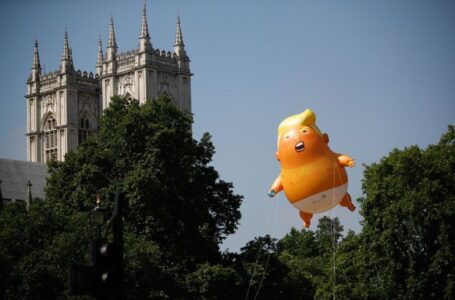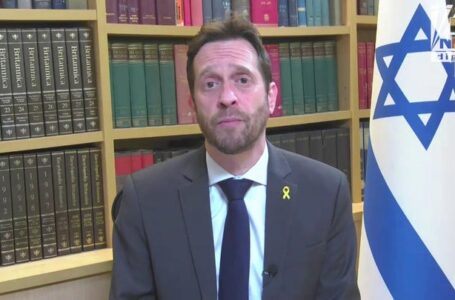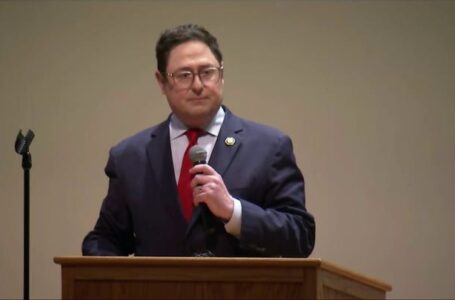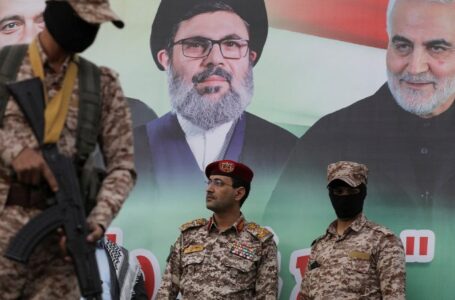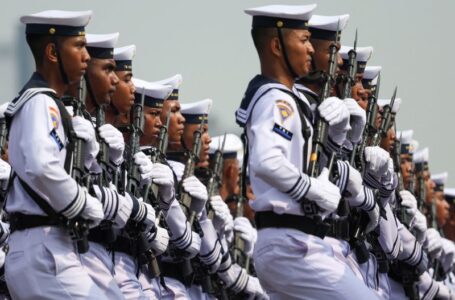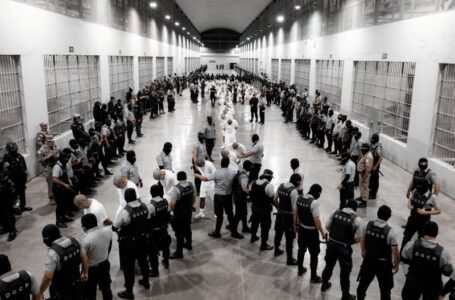London’s mayor: ‘Clearly a link’ between Trump and Americans wanting to become Brits
Vladimir Putin meets with Iranian President Pezeshkian to celebrate ‘very close’ relationship
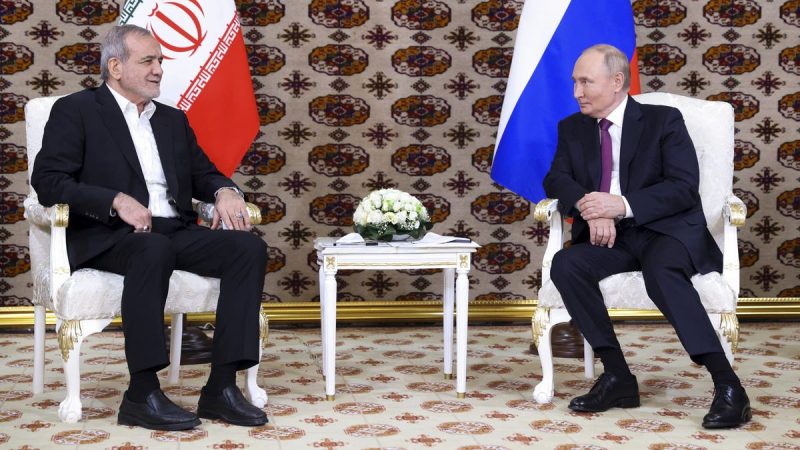

Russian President Vladimir Putin met with Iranian President Masoud Pezeshkian on Friday, hailing the ‘very close’ relationship between Russia and Iran.
The meeting comes as Iran braces for an Israeli response to its missile attacks on Tel Aviv earlier this week.
‘We are actively working together in the international arena, and our assessments of events taking place in the world are often very close,’ Putin said, as reported by Russia’s state news agency TASS.
The cooperation between the two sanctioned nations has sparked renewed alarm in the West. U.S. officials have said Tehran is supplying Moscow with ballistic missiles to use in its fight against Ukraine.
In return, Russia is suspected of providing Iran with sensitive nuclear technology – as it draws nearer in its capabilities to being a fully nuclear-armed state.
‘Russia is the world’s largest nuclear power. It holds an advantage even with the United States when it comes to nukes, especially in the tactical warhead realm and, obviously, it can share,’ Rebekah Koffler, former senior official in the U.S. Defense Intelligence Agency (DIA) and author of ‘Putin’s Playbook,’ told Fox News Digital.
‘Nuclear is not the only capability – strategic capability of concern – there’s also cyber and space weapons,’ she said.
Former President Donald Trump launched the U.S. Space Force in August 2019 to counter Russia and China’s capabilities in space.
‘Russia has, again, one of the world’s most robust counter space weapons and has a developed, mature space warfare doctrine,’ Koffler went on.
‘Nuclear weapons do not work without satellites. Whatever Iran has right now, however close they are in terms of developing the actual capability, can’t do anything without a satellite network. You can’t do targeting, you can’t do command and control, missile warning, all that stuff, you cannot negate the adversaries command and control capability, and that is what Russia can, and probably has, to some extent, provided to Iran, although there’s no conclusive analysis.’
During the gathering, Putin reportedly backed up Pezeshkian’s condemnations of Israel. Pezeshkian said that Israel must ‘stop killing innocent people’ and blamed the U.S. and European Union for supporting Israel in the war.
The pair met on the sidelines of an international conference in Turkmenistan. Pezehskian agreed to visit his counterpart in Russia, according to state-run RIA news agency.
‘Economically and culturally, our communications are being strengthened day by day and becoming more robust,’ Pezeshkian was cited as telling Putin by Iran’s official IRNA news agency.
‘The growing trend of cooperation between Iran and Russia, considering the will of the top leaders of both countries, must be accelerated to strengthen these ties,’ he said.
The meeting represents a stark reorienting for Putin, who in the past has been the ‘most pro-Israel president in Russian history,’ according to Koffler. But both Russia and Iran face steep sanctions from the U.S.
Around 20% of the Jewish population in Israel are Russian expatriates. ‘Jewish people, traditionally, are very smart, highly educated, highly employable. And with Russia having a demographic issue, Putin ideally wants those people, or their children or their grandchildren to come back to Russia,’ Koffler explained.
The Israeli Prime Minister was initially resistant to providing arms to Ukraine when Russia invaded. But the Pentagon tapped into a little-known stockpile of U.S. weapons stored in Israel for its defense to help fill Ukraine’s request for artillery last year.
The U.S. has offered Ukraine over $100 billion in arms assistance over the course of the war. Russia views Israel, which is also armed by U.S. supply, as squarely in the camp of the Americans.
‘It’s not Iran that pushed Russia. Iran has no influence. Russia has always been the top dog in that relationship,’ said Koffler. ‘But it’s Russia that oriented itself towards Iran as a result of the Biden administration’s policies.’

